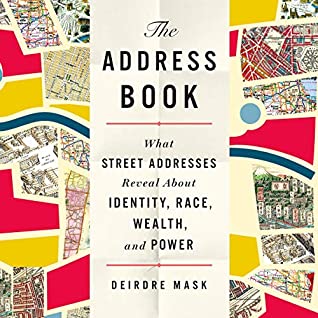This is a fascinating examination of the history and development of a mundane fact of everyday life--addresses. We all have addresses; how else would we get our mail or tell people where we live?
Except we don’t all have addresses, and it's not just the homeless who lack them. In large parts of the world, including rural areas of the US, poorer and less privileged areas don't have street names and house numbers. That lack creates problems not just in telling potential visitors where you live, but in getting mail, applying for jobs, registering to vote, and qualifying for aid such as unemployment benefits. Or getting an ambulance to your house in an emergency.
Addresses are also surprisingly modern. They didn't arise with organized street systems. As familiar as ancient Roman cities can seem, most Roman streets didn't have names, nor did any have house numbers. No, addresses as we know them are a product of Enlightenment Europe.
Deirdre Mask gives us the story of what sparked her interest in the history and current state of addresses, and a very personal and lively account of her exploration of the subject. Addresses weren't invented for all the reasons that they make our lives easier. Fundamentally, they were invented to make taxation, conscription, and arresting suspected lawbreakers easier for the government. People were often deeply suspicious and even actively hostile to the project of naming their streets and numbering their houses. They often still are, in the areas governments are only getting around to assigning addresses now.
Yet addresses do bring all those benefits with them--allowing families to communicate at long distance before the telephone started to create a higher-tech solution to that problem, but also to receive packages you want, register to vote, and apply for jobs. Not having an addresses is a major obstacle to getting a job, or getting medical care. Addresses, for good and ill, become part of our identities.
Mask's account of this, including the alternative addressing systems being developed now for a digital age, is just completely engrossing, informative, and filled with the unexpected. Highly recommended.
I bought this audiobook.

No comments:
Post a Comment